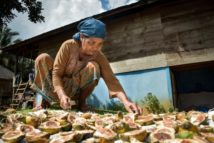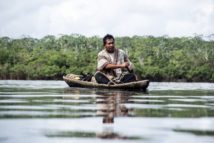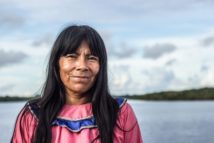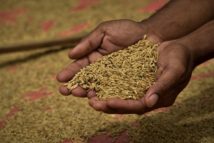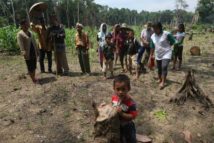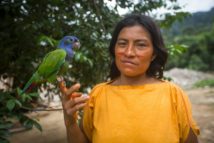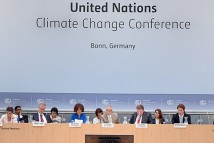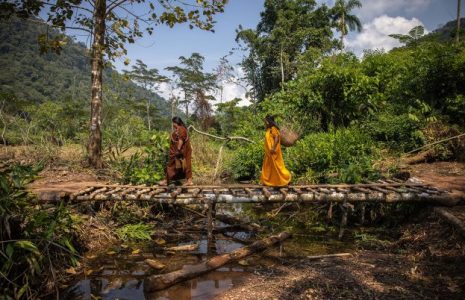
MOST READ
Daniel Cooney - 15 Nov 2011
Finance, reference emission levels and monitoring will not be resolved easily.
READ THIS
About
23 Results found. From 1997 - 2024


1 Aug 2023
Are REDD+ safeguards supporting community land, resource, and carbon rights?
Steps forward from the review of 11 safeguard standards
Analysis
- 23 Mar 2023
Community rights and REDD+ in Indonesia
Findings from a workshop on implementing safeguards in Jambi Province
Analysis
- 17 Oct 2022
Doing better than ‘Do no harm’
How do the safeguards for REDD+ voluntary standards support the rights of Indigenous Peoples and local communities?
DG’s Column
- 4 Dec 2017
Did we get it wrong? CIFOR responds to critique
Why we stand by our Infobrief on rights abuse allegations in the context of REDD+
Analysis
- 10 Nov 2017
COP23 Special: What would a rights-based REDD+ look like?
Eight transformational proposals from a new literature review
Analysis
- 8 Nov 2017
COP23 Special: Can REDD+ benefit the poor?
Why the scheme’s success depends on it
Analysis
- 8 Nov 2017
COP23 Special: Can REDD+ benefit the poor?
Event Coverage
- 23 Oct 2017
Indonesia not ready to bury REDD+
National discussion finds emission-reducing scheme to be a work in progress
Event Coverage
- 23 Oct 2017
Indonesia not ready to bury REDD+
Feature
- 19 Oct 2017
Benefits do not always equal cash
In Peru, REDD+ communities recognize non-cash benefits to conservation
Feature
- 19 Oct 2017
Benefits do not always equal cash
Analysis
- 10 Jun 2015
The REDD+ Framework: Finally complete after almost 10 years
The end of the beginning of REDD+ implementation?
Event Coverage
- 16 Dec 2014
Deal or no deal, experts upbeat on progress of REDD+ safeguards
“Our rights come first,” stressed Cándido Mézua Salazar, from the National Coordinating Body of Indigenous Peoples of Panama.
Feature
- 3 Dec 2014
10 things you need to know about REDD+ safeguards
Seven REDD+ safeguards were introduced in the 16th Conference of Parties (COP16) in Cancun, Mexico in 2011.
Feature
- 3 Dec 2014
10 things you need to know about REDD+ safeguards
Most popular
CIFOR-ICRAF harnesses the power of trees, forests and agroforestry landscapes to address the most pressing global challenges of our time – biodiversity loss, climate change, food security, livelihoods and inequity.
In Focus
Forests News is governed under CIFOR-ICRAF’s Privacy Policy and Terms of Use.
